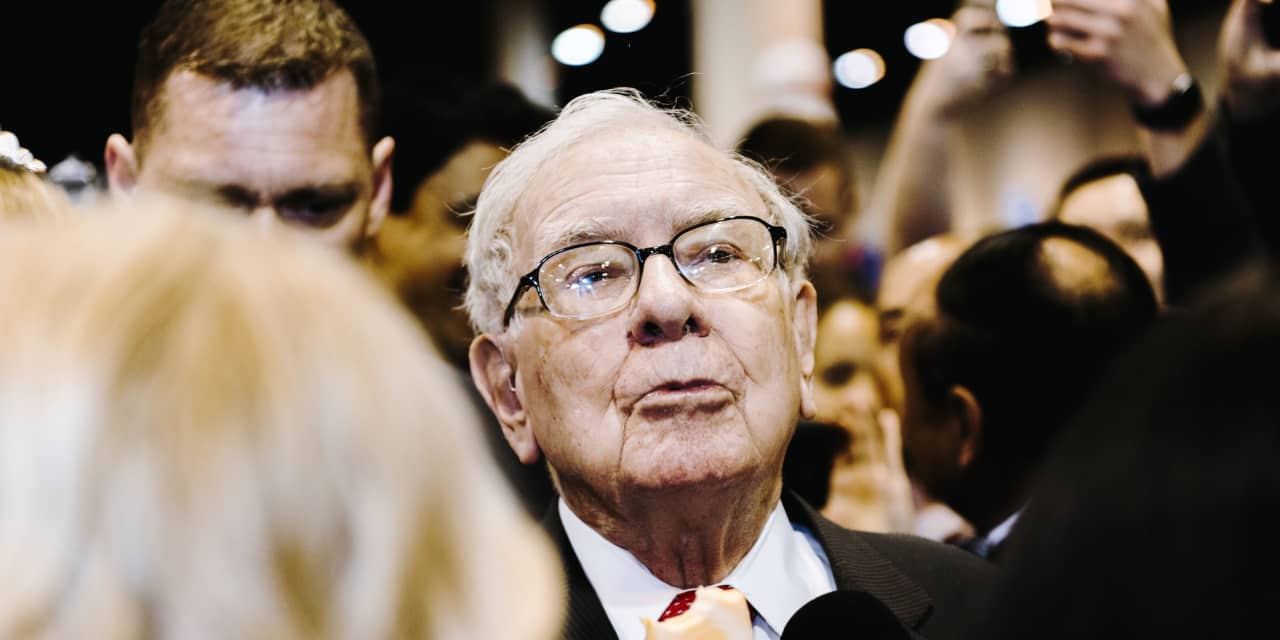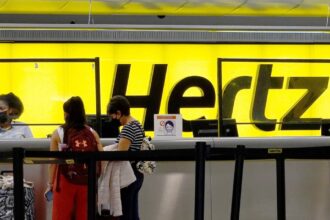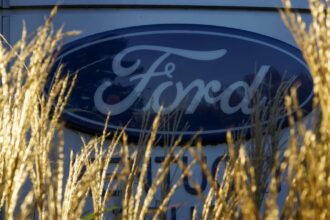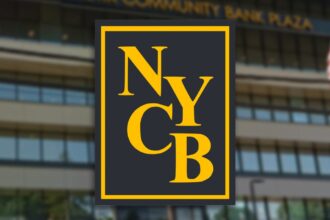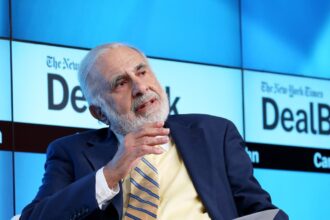Warren Buffett, chairman and CEO of Berkshire Hathaway.
Houston Cofield/Bloomberg
Much is made of
Warren Buffett’s
conversion from his early days as a deep-value investor along the lines of his mentor Benjamin Graham to one who appreciates growth stocks.
But Buffett remains a value investor at heart, and rarely pays up for stocks or businesses at
Berkshire Hathaway
(ticker:
BRKb
).
In the case of Pilot, the truck-stop operator, Berkshire Hathaway agreed to buy the company for a simple 10 times annual earnings before interest and taxes. That equates to about 15 times after-tax earnings. The disclosure came in a recent lawsuit by Pilot against Berkshire Hathaway.
Pilot is suing Berkshire Hathaway over the method for calculating how much Berkshire Hathaway will pay for the remaining 20% stake held by the Haslam family, which sold 80% of the company to Berkshire Hathaway over two stages in 2017 and 2023 for a total of about $11 billion.
This may be the first disclosure of how Buffett, Berkshire Hathaway’s longtime CEO, values private businesses he wants to acquire.
Buffett also oversees Berkshire Hathaway’s investment portfolio that includes about $350 billion of stocks. When it comes to buying stocks, Buffett takes a value approach—with a few exceptions.
Shares of Berkshire Hathaway’s biggest holding,
Apple
(AAPL), now trade for about 27 times earnings, but when Buffett was accumulating a stake in Apple from 2016 through 2018, he paid less than 15 times earnings. Apple was then viewed as a cyclical hardware company, but Buffett recognized that it amounted to a stable consumer franchise.
Berkshire Hathaway holds 915 million Apple shares worth $165 billion, about half the Berkshire Hathaway equity portfolio.
Shares of one stalwart Berkshire Hathaway holding,
Coca-Cola
(KO) has long traded between 20 and 30 times earnings, but Buffett bought it closer to 15 times earnings in the late 1980s.
Buffett paid less than 15 times earnings for shares of
Bank of America
(BAC),
Chevron
(CVX), and
Occidental Petroleum
(OXY), all large Berkshire Hathaway holdings, in the past decade.
Berkshire Hathaway also has purchased value stocks such as
Citigroup
(C),
HP
(HPQ), and
Paramount Global
(PARA) since the start of 2022 for under 15 times earnings.
When Buffett paid up for Precision Castparts, a maker of aircraft parts, in 2016 in a deal worth over $30 billion, the results weren’t great. Berkshire Hathaway bought it for more than 20 times after-tax earnings.
Precision Castparts has been a disappointment as Berkshire Hathaway appeared to buy at peak margins, and the company was hit by the aerospace downturn during the pandemic.
Precision Castparts’ revenue and earnings are now below what it generated in 2015 and Berkshire Hathaway has taken about $10 billion of write-downs on the company which could be worth around $20 billion now based on an estimated $1.6 billion of pretax earnings this year. The
S&P 500
has doubled since that deal was struck in 2015.
Berkshire Hathaway does hold some high-price stocks in its equity portfolio, including
Amazon.com
(AMZN), Visa (V),
Mastercard
(MA), and
Snowflake
(SNOW). These smaller holdings of under $2 billion each likely were bought by investment managers Todd Combs or Ted Weschler, Berkshire Hathaway watchers tell Barron’s. The two run about 10% of the equity portfolio.
Combs gave a talk a year ago at Columbia Business School, and discussed how he and Buffett approach investments.
While the talk was off-the-record, there was at least one detailed account posted on the Internet. Combs reportedly said that he regularly meets with Buffett and they talk about stocks. Buffett asks what companies in the S&P 500 were trading for 15 times forward earnings, and how many can expand earnings at 7% annually over the next five years with a reasonable degree of confidence.
Old habits die hard, and Buffett seems to still like buying cheap stocks.
Write to Andrew Bary at [email protected]
Read the full article here


